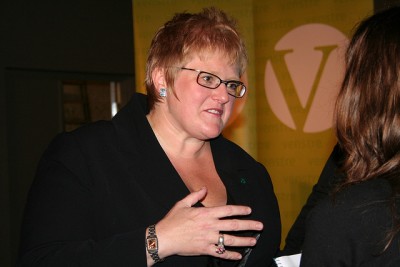UPDATED: Norway’s minority government coalition survived a battle over its first proposed state budget without, for example, having to go along with the Liberal Party leader Trine Skei Grande’s demand to raise fuel taxes. The two government parties and their two so-called support parties finally agreed during the night on a revised budget peppered with compromises.

Norwegian Broadcasting (NRK) reported on its early morning newscasts that all four parties (the Conservatives, the Progress Party, the Liberals and the Christian Democrats) planned to meet with their parliamentary groups Friday morning to discuss the revisions and secure their support. They did, and a budget agreement was signed by mid-day, as details emerged of the key compromises.
None of the top politicians would initially reveal details of the budget revisions before discussing them with their party colleagues, but both newspaper Aftenposten and NRK reported that the small Liberal Party (Venstre) gave up its initial demand to raise fuel taxes to further discourage driving. The higher fuel taxes were part of an effort by the Liberals to make the state budget more environmentally friendly, but they settled on funding for other environmental measures instead.
An increase in fuel taxes was firmly opposed by the conservative Progress Party, the smaller of the two government coalition parties that already has been catching flak from its voters for making too many compromises. Finance Minister Siv Jensen, who leads the Progress Party, has been trying to cut taxes and fees, and would not have been able to go along with the Liberals’ proposal.
The government parties led by the Conservatives went along with trimming their plans to lower Norway’s controversial tax on net worth, also known as formueskatt (literally, fortune tax). The government has been harshly criticized that such tax relief would only benefit the wealthiest in Norway, while the government claims it would allow business owners to invest more in their companies and create jobs.
The budget breakthrough predictably resulted in claims from the two small parties, not least the Christian Democrats, that they’d succeeded in giving the conservative government’s budget a higher social and environmental profile. The government, meanwhile, claimed that the framework of its initial budget remained intact. It didn’t need to lodge a rumored threat that it otherwise would resign.
With all four parties’ parliamentary groups agreeing to the budget revisions, debate in the full parliament will proceed as scheduled over the next few weeks. The opposition parties have been proposing budgets of their own, but the non-socialist government’s budget will pass with the support of the Liberals and Christian Democrats.
newsinenglish.no/Nina Berglund

